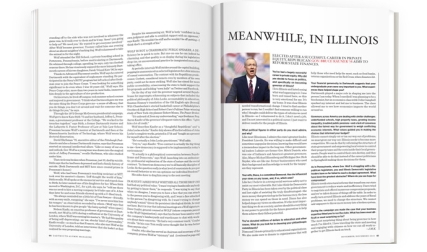Our babysitter canceled on my 37th birthday, and I could not have been happier. Instead of having to convince some snooty French waiter that I understood his wine list, I got to stay home and play with our 10-month-old son. I cherished time with the little squirt. Suits were in fashion back then, and I remember coming home from work still in my dress slacks and diving onto the rug with him. Hey, nothing a whiskbroom and a dry cleaner couldn’t fix.
Young David was a quiet kid, and as he got older a stutter caused him to withdraw a bit. He was not the outgoing dancer his older sister was and still is today. He seemed, instead, to be a shy and courteous young boy. We didn’t know he had already lost the genetic lottery.
As David grew up he became a strong student, with SATs well into the 700s and straight A’s in his high school classes. He enjoyed shooting baskets to blow off steam, and he had a particular interest in cars. But in the spring of his high school senior year (2010), his brain seemed to sporadically grind to a halt. He would just put his head down on his desk.
The hardest thing about mental illness is that you can’t X-ray it. I wanted to see the problem, define the problem and fix the problem—a fantasy taught at business schools. But each doctor visit generated a different diagnosis, with evaluations careening between ADHD, Asperger’s, clinical depression, bipolar disorder and schizoaffective disorder. Why couldn’t I get a straight answer? Each medical appointment offered hope, then recurring despair.
Rather than going directly to college after high school, a year off working at a Mercedes dealership lifted young David’s spirits and helped him relax. His friends had all drifted off, one by one. Few 18-year-olds have the patience for someone who is slowing down. David became isolated, but I was still his friend. Although he’d grown taller than me, I still hugged him and wrestled with him on the rug every night when I got home.
David has been able to complete two years of college, but repeat hospitalizations make long-term progress difficult. Physical hospitals do a wonderful job with the resources they have, but earlier this summer, during yet another of David’s dark periods, his mother and I were able to transfer him to Silver Hill Hospital, a specialty facility in New Canaan, Connecticut, where Truman Capote, Judy Garland, Mariah Carey and other celebrities have gone to reboot. I found visitors’ hours filled with tony parents, but the patients all had the same, hollow eyes. Our family is so appreciative of all they have done for David there, and for the ever-brave—and calm—mental health workers.
Treatment is a climb of finding the right medication and then convincing the patient it will not hurt him. Having studied math at Dartmouth and earned a Harvard M.B.A., I consider myself a logical man. But I blew off my philosophy classes, and that was a mistake. This mental illness python defies logic. It reaches way back into family DNA and wraps around an offspring without warning. I own a company with 3,000 wedding planners, so I try to keep my game face on during office hours. Good salesmen can fake it, but long red lights are the worst, as the world sees me crying.
Our family’s struggle is not unique, and I’d like to share a few suggestions with DAM’s thoughtful readers.
Any family affected by mental illness should not feel ashamed, as is so often the case, but instead think about the condition as being like any other disease. Perhaps considering it this way will help: Cancer is basically cells dividing out of control. Except for maybe smoking, the patient did nothing to cause it. Mental illness is a change in brain chemistry. Same deal. The patient did nothing to cause it.
If a family member or a friend of yours has a change in behavior, seek help right away. Do not delay. As the old joke goes, what is the longest river in the world? Denial. This illness will not go away on its own—and mental health specialists have seen most conditions before.
Also, I urge you to reach out! My Dartmouth pals have been incredibly supportive. We do not need to spend hours together, but just hearing they stand ready to talk has made all the difference.
Access professional support if you’re coping with mental illness in your family, and attend meetings held by the National Alliance on Mental Illness (well known as NAMI). You will meet others dealing with similar challenges, learn how widespread mental illness is and combine your energies to move forward.
There have been some very sad times when our son, having felt tortured for so long, begged me to help him kill himself. I want to puke as I write this, but this has raised some painful questions for me: What is true compassion? How long do we let a family member suffer? Should we revisit assisted suicide guidelines, currently available only for six-month, terminal illnesses?
My wife and I have vowed to put our son’s life in God’s hands and to help our son live as long as possible, no matter how big the challenge. We cannot cure him, but we wish to provide professional care and bombard him with love for as long as we can.
Finally, I encourage you to keep a close watch for that quiet person in the room. Offer a smile—or a hug—and ask how things are going. Your kindness will be remembered forever.
David M. Wood and his wife, Bobbie (daughter of Paul Canada ’50), live in Ridgefield, Connecticut.




